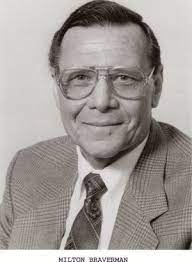Braverman, Harry

Bio: (1920-1976) American sociologist. Harry Braverman is known for his significant work Labor and Monopoly Capital (1974), in which, within the Marxist paradigm, he studies how the work of manual workers has changed since the time of Karl Marx. The main conclusion of his study is that there was a massive decrease in the skills and knowledge of manual workers in the sphere of industrial production in the twentieth century. Such a reduction in the skills and knowledge of workers is not the product of chance, but of the systematic action of the capitalists to weaken the organized labor movement.
The main method by which the deskilling of workers was achieved was by the application of principles of Taylorism, or scientific management. Taylorism, named after its founder Frederick Taylor, is the science of managing someone else's work under capitalism. Taylor wanted to achieve the highest possible productivity of labor by applying scientific methods, and he hoped that everyone, including workers, would see the rationality of his approach. The basic principles of Taylorism are the separation of the work process from the skills of workers, the separation of ideas from execution, and that all mental work should be removed from the plant and concentrated in the planning department, in order to use the knowledge monopoly to control every step of the work process. Craftsmen had great theoretical and technical knowledge in the 18th and 19th centuries, while the application of Taylorism separated skill and knowledge, so the worker stopped being a craftsman, and became a living tool of the machine.
Braverman believes that the scientific management movement is of invaluable importance in shaping modern corporations and that it rules the world of production. Experts in human relations and industrial psychology are becoming a service department for the maintenance of human machinery. Taylorism has brought control over workers and the work process to a whole new level. In addition, the increase in productivity achieved by Taylorism did not lead to a proportional increase in wages, on the contrary, there was a reduction in wages. Braverman believes that the loss of control, knowledge, and reduction of wages that workers have experienced is the essence of Taylorism.
Fields of research
Capitalism Capitalist Class Classes Crafts (Artisans) Industry Knowledge Management Monopoly, Economic Movements, Social Science Technology Work Working ClassTheoretical approaches
Marxism – Historical MaterialismMain works
Labor and Monopoly Capital: The Degradation of Work in the Twentieth Century (1974).

